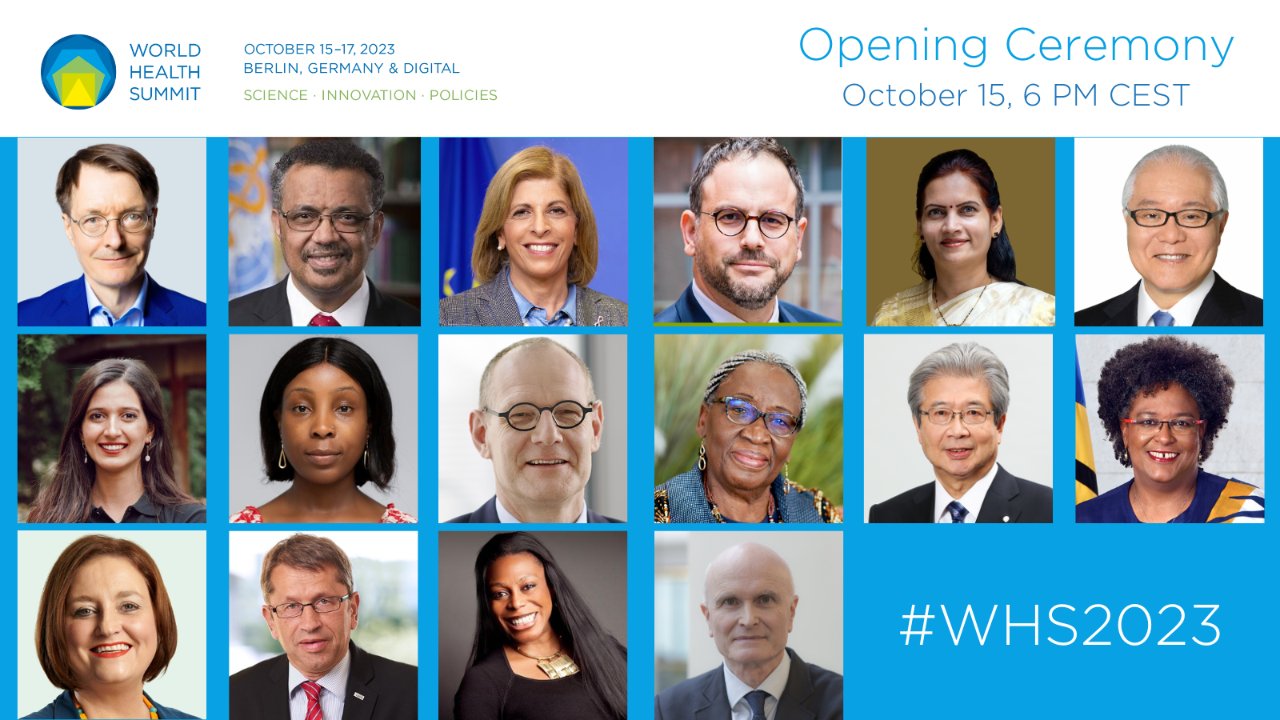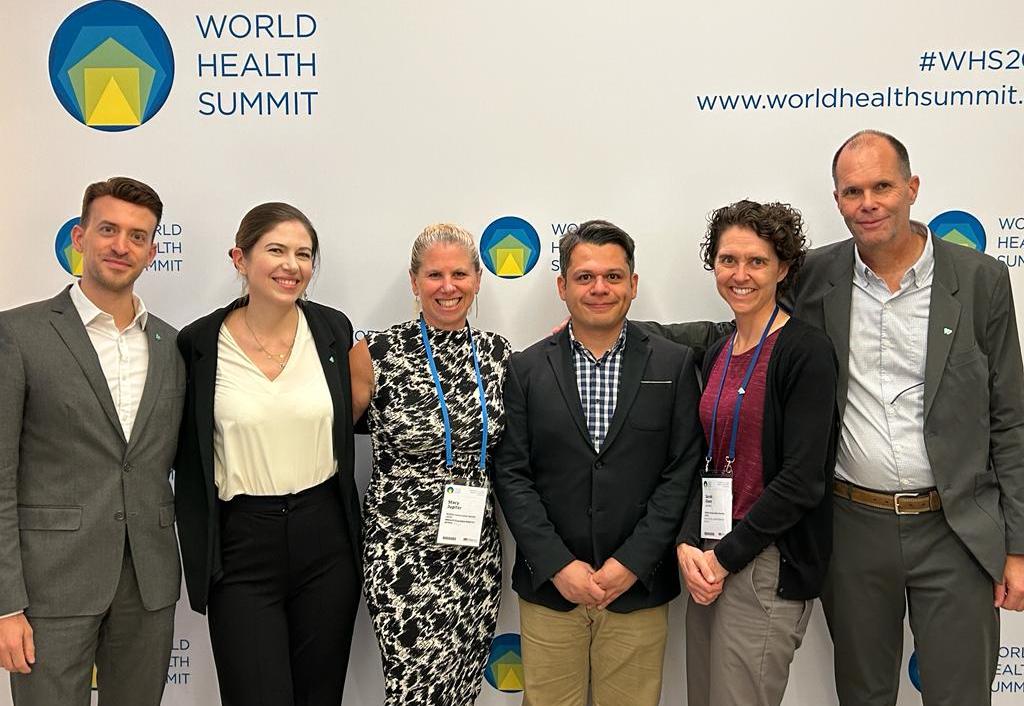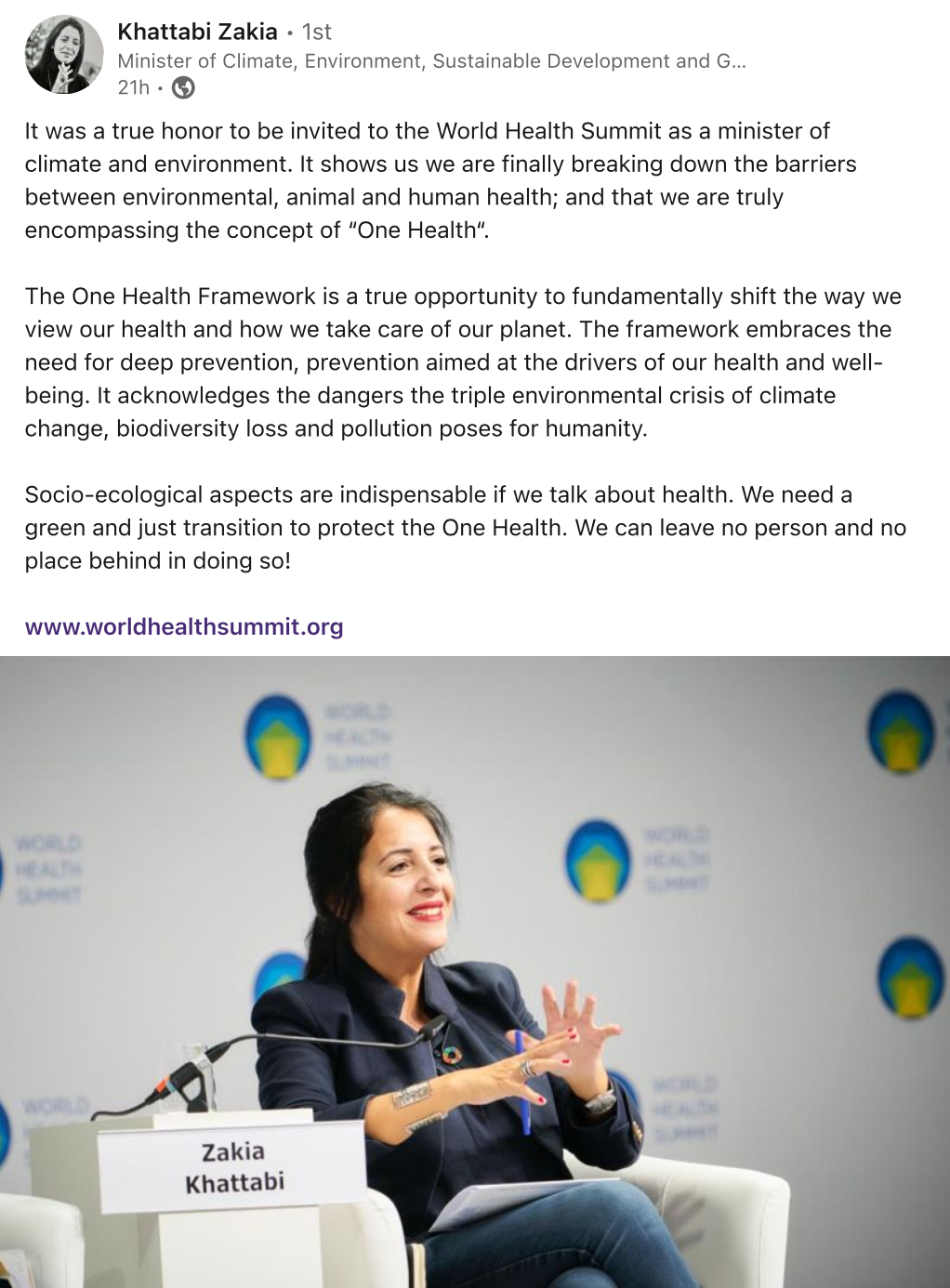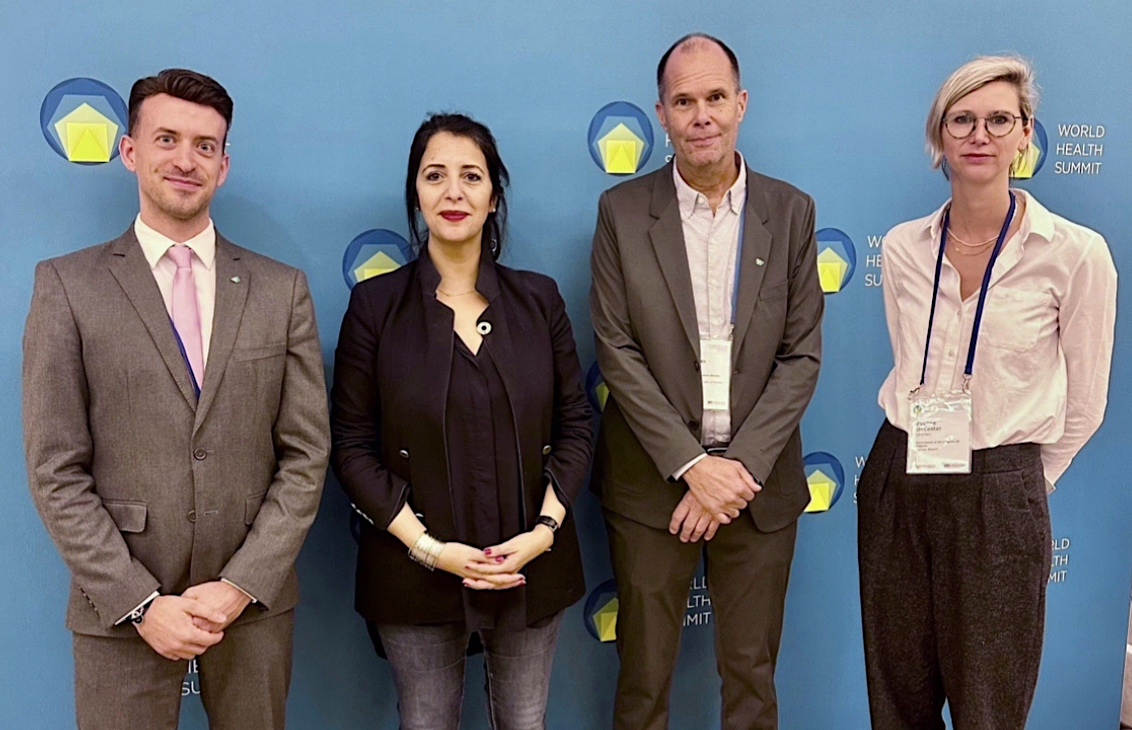
World Health Summit
The World Health Summit took place on 15-17 October 2023 in Berlin, Germany, with 370 speakers from all over the world and 3,000 participants on-site, and more than 12,000 online participants. Topics included One Health Equity, pandemic prevention, climate change and health, the role of the G7 and G20 in global health, and 75 years of WHO.
The World Health Summit (WHS) is a unique international strategic forum for global health, which brings together stakeholders from politics, science, the private sector, and civil society from around the world to set the agenda for a healthier future. It is important to recognise that human health cannot be considered alone and that it is intrinsically linked to animal and ecosystem health. The science is clear that pandemics of zoonotic origin, such as COVID-19, are directly related to the increased human/wildlife interface caused by land-use change, in particular the destruction of high-integrity ecosystems; deforestation and forest degradation; and urban markets mixing wildlife, people and domestic animals in ways that promote spillover. Follow the conversations on X: #WCSatWHS2023 and #WHS2023.

In October 2019, a mere two months before the COVID-19 pandemic ravaged the global economy and severely impacted our societies, the Wildlife Conservation Society (WCS) and the German Federal Foreign Office co-hosted a conference titled, “One Planet, One Health, One Future” which brought together members of academia, government, policy, and civil society from nearly 50 countries to forge the Berlin Principles on One Health, capturing the threat to society if we continue to ignore the interconnected issues relevant to human, animal and environmental health. The European Union (EU), France, and Germany are stepping up efforts in the One Health area, notably through the Sustainable Wildlife Management (SWM) Programme, the Preventing ZOonotic Disease Emergence (PREZODE) initiative, and the International Alliance against Health Risks in Wildlife Trade, in all of which WCS is an active member and partner.
WCS health and policy experts participated in the WHS 2023 to ensure that nature remains a top priority on the global health agenda, to contribute to discussions on the One Health approach, to discuss the critical need to include ‘prevention at source’ in the new World Health Organization (WHO) instrument to strengthen pandemic prevention, preparedness and response, and to connect with longstanding EU, French, German, and other partners and colleagues. In the picture below (left to right): Arnaud Goessens, Associate Director, EU Policy; Molly Crystal, Director of Strategic Partnerships, Germany; Stacy Jupiter, Melanesia Regional Director; Luis Fernando Guerra, Health Program Coordinator, Mesoamerica & W. Caribbean; Sarah Olson, Director of Health Research; and Christian Walzer, Executive Director of Health.

Intergenerational and Interspecies One Health Equity
For the first time, WCS led an official WHS session titled 'Intergenerational and Interspecies One Health Equity'. The entangled and reinforcing polycrisis of climate change, pandemics, food insecurity, biodiversity loss, expanding pollution, and growing global inequities amplify the need to consider health equity broadly. Interspecies and intergenerational health equity exists when steps taken to protect the health of one species today do not compromise the ability of future generations or other species to meet their needs. This session was chaired by Prof. Dr. Craig Stephen, McEachran Institute | Executive Director | Canada, and Prof. Dr. Christian Walzer, WCS | Executive Director of Health | USA, and included speakers such as Dr. Mariam Wallet Mohamed Aboubakrine, United Nations Permanent Forum on Indigenous Issues | Former President, Dr. Stacy Jupiter, WCS | Melanesia Regional Director | Fiji, Ms. Zakia Khattabi, Minister of Climate, Environment, Sustainable Development and Green Deal | Belgium (represented by her Advisor, Eveline DeCoster), Prof. Dr. Rhoda Wanyenze, Makerere University | School of Public Health | Professor and Dean | Uganda, and Dr. Katie Woolaston, Queensland University of Technology (QUT) | Senior Lecturer | Australia.
Dr. Stacy Jupiter presented WISH+, as part of the Kiwa Initiative, which focuses on Nature-based Solutions to improve resilience to climate sensitive diseases and protect biodiversity in upstream watersheds and downstream coral reefs at key sites in Fiji, Solomon Islands & Papua New Guinea. The Initiative is funded by the European Union, Agence française de développement (AFD), Global Affairs Canada (GAC), Australia's Department of Foreign Affairs and Trade (DFAT) and New Zealand's Ministry of Foreign Affairs and Trade (MFAT). For more information: www.kiwainitiative.org
Finding Consensus on an International Pandemic Accord
COVID-19 exposed major gaps in global pandemic prevention, preparedness and response and sparked profound debates on how to reform the global health architecture and legal landscape to be better prepared for future pandemics. As negotiations in Geneva continue, speakers in this sesssion discussed how the Pandemic Accord can unfold its full potential for real change, and reflected on why it is difficult for the negotiating parties to reach consensus. This session was hosted by the Federal Ministry of Health of Germany (BMG), and included speakers such as Dr. Francisco Pérez-Cañado, European Commission | Adviser to the Director-General on the External Dimension of Health, Prof. Dr. Lars Schaade, Robert Koch Institute (RKI) | President | Germany, Steven Solomon, WHO | Principal Legal Officer, and María Juliana Tenorio Quintero, Permanent Mission of Colombia before the UN – Geneva | Minister Counsellor | Switzerland.
Dr. Francisco Pérez-Cañado highlighted that the first pillar of equity is not equity in handling diseases but equity in preventing diseases. The EU has therefore suggested strong provisions in the Pandemic Accord on prevention, outbreak surveillance, and rapid control of outbreaks, all with a One Health approach. He added that unless we look at prevention linking animal, environmental, and human health, we will not stop the next pandemic.
Ms. Zakia Khattabi, Minister of Climate, Environment, Sustainable Development and Green Deal | Belgium (on LinkedIn)

In the picture below (left to right): Arnaud Goessens, Associate Director, EU Policy; Zakia Khattabi, Minister of Climate, Environment, Sustainable Development and Green Deal of Belgium; Christian Walzer, Executive Director of Health; and Eveline DeCoster, Environmental Advisor at the Office of the Belgian Minister of Climate, Environment, Sustainable Development and Green Deal.

READ MORE
Pandemic prevention at source
Links between Ecological Integrity and Human Health
Best Practices to Confront Pandemics at the Source
WCS Recommendations to Reduce Pandemic Risk